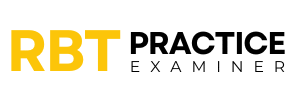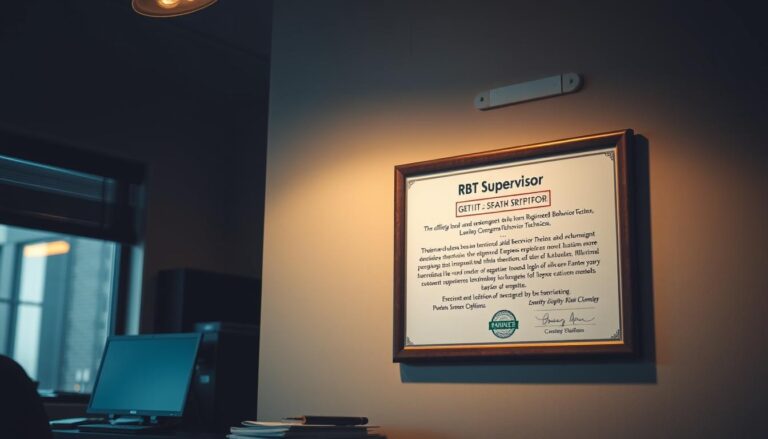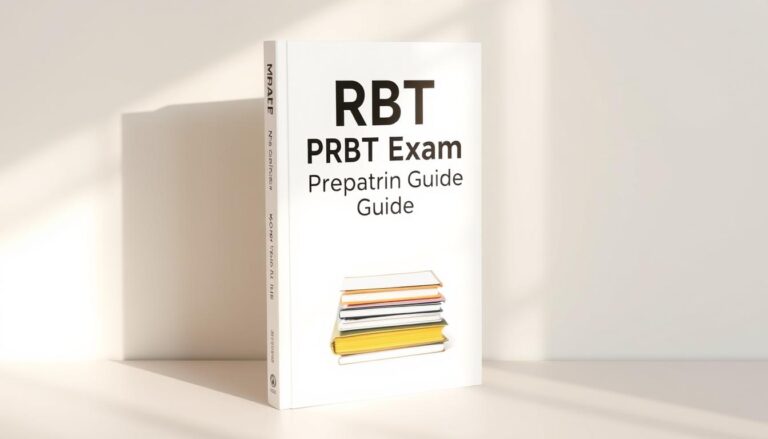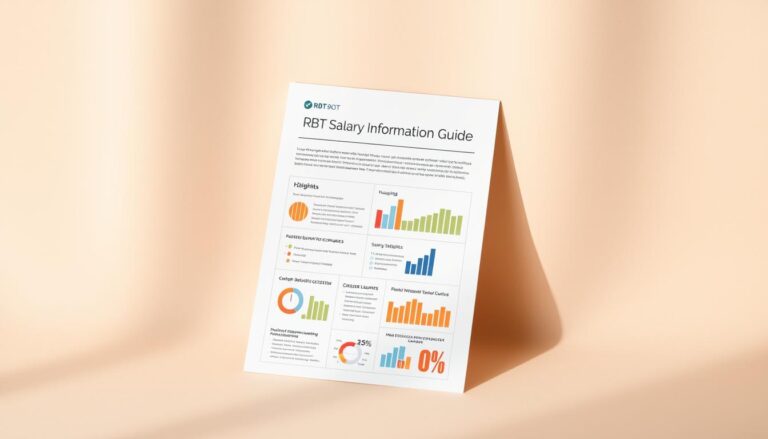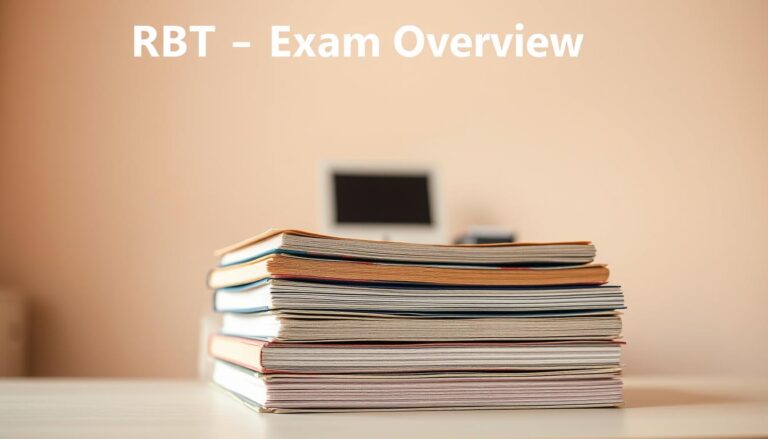RBT to BCBA: The Path to Becoming a Board Certified Behavior Analyst
Starting your journey to become a BCBA is an exciting step for Registered Behavior Technicians. It’s a path filled with growth and new challenges in Applied Behavior Analysis. To move from RBT to BCBA, you need a clear plan and a strong commitment to learning.
This guide will help you understand the steps to become a Board Certified Behavior Analyst. The journey includes education, fieldwork, and getting certified. It’s a detailed process that will help you grow professionally.
If you’re an RBT looking to advance, this roadmap is for you. It outlines the key steps, educational goals, and professional development needed for BCBA certification. By improving your skills and getting specialized training, you’ll open doors to new opportunities in behavioral health.
Transitioning from RBT to BCBA requires hard work, planning, and a love for helping others. Our guide offers insights into the qualifications, experiences, and education needed for this career shift. It’s a journey that will enrich your skills and help you make a difference in people’s lives.
Understanding the Journey from RBT to BCBA
Going from a Registered Behavior Technician (RBT) to a Board Certified Behavior Analyst (BCBA) is a big step. It takes hard work, more education, and a desire to grow in behavioral skills.
The path to BCBA certification has key steps. These steps turn an RBT’s basic knowledge into deep professional skills. Growing in this field means planning and always learning more.
Key Differences Between RBT and BCBA Roles
RBTs and BCBAs do different things in helping behaviors:
- RBTs carry out behavior plans
- BCBAs create and oversee big behavior plans
- BCBAs can do detailed analysis and assessment
- BCBAs lead and supervise others
Career Growth Opportunities
Getting from RBT to BCBA opens many career doors:
- Jobs in leading clinical teams
- Creating educational programs
- Working in research and teaching
- Starting your own practice
Salary Comparison
Getting BCBA certified can really boost your income. BCBAs make a lot more than RBTs. This shows their higher skills and bigger roles.
| Role | Average Annual Salary |
|---|---|
| RBT | $35,000 – $42,000 |
| BCBA | $65,000 – $90,000 |
Growing in behavioral analysis needs a strong plan and ongoing learning.
Prerequisites for BCBA Certification
Getting BCBA certified needs a lot of preparation and meeting certain requirements. It’s key for those wanting to grow in the field of behavior analysis.
To become a BCBA, you must hit several educational and professional marks. You need a solid academic base and a deep commitment to behavioral analysis.
- Hold a minimum of a master’s degree from an accredited institution
- Complete specific coursework in behavior analysis
- Obtain supervised fieldwork experience
- Pass the official BCBA certification examination
First, pick a graduate program approved by the Behavior Analyst Certification Board (BACB). These programs need you to take courses in applied behavior analysis, research, and ethics.
Best for BCBA certification are fields like psychology, education, and counseling. Make sure your program meets the strict standards set by governing bodies.
- Psychology majors have a natural advantage
- Education professionals can leverage existing credentials
- Counseling backgrounds provide complementary skills
Prospective BCBA candidates should check the specific requirements. They can change based on your academic and professional background.
Educational Requirements for BCBA Certification
To get a BCBA certification, you must follow specific educational paths. You need to complete graduate-level training and specialized courses. These are key steps for a career in advanced behavioral analysis.
Those aiming for BCBA certification must know the essential educational parts. These parts are the base of their career in advanced behavioral analysis.
Approved Graduate Programs
Finding the right graduate program is vital for BCBA certification. You must pick programs that meet the Behavior Analyst Certification Board (BACB) standards. This ensures you get the best education for your career.
- Accredited behavioral analysis programs
- Programs with verified course sequences
- Curriculum aligned with BACB standards
Course Content Requirements
BCBA coursework covers key areas to build your skills:
| Course Category | Key Focus Areas |
|---|---|
| Experimental Analysis | Research methodologies and behavioral principles |
| Applied Behavior Analysis | Intervention strategies and ethical practices |
| Professional Ethics | Ethical decision-making and professional conduct |
Selecting the Right University
When looking at graduate programs, consider these important factors:
- Program accreditation status
- Faculty expertise in behavioral analysis
- Flexibility of course delivery
- Opportunities for practical experience
Pro tip: Make sure the program you choose is clear about preparing you for BCBA certification. It should also offer full support during the certification process.
How to Become a BCBA from an RBT: Step-by-Step Guide
Going from a Registered Behavior Technician (RBT) to a Board Certified Behavior Analyst (BCBA) needs a lot of planning and hard work. The path to becoming a BCBA from an RBT has many steps. Each step requires dedication and growth in your career.
- Complete Educational Requirements
- Earn a graduate degree in behavior analysis or a related field
- Make sure the program is BACB-approved
- Focus on courses in applied behavior analysis
- Accumulate Supervised Experience
- Get the needed supervised fieldwork hours
- Work under a qualified BCBA supervisor
- Keep a record of your direct clinical experience
- Prepare for Certification Exam
- Study the BCBA exam materials thoroughly
- Take practice tests
- Work on strategies for the test
The journey from RBT to BCBA usually takes 2-3 years. This time can vary based on your situation and educational choices.
| Stage | Duration | Key Requirements |
|---|---|---|
| Graduate Education | 2 years | Master’s degree in behavior analysis |
| Supervised Experience | 1-2 years | 1500-2000 supervised fieldwork hours |
| Certification Exam | 3-6 months | Comprehensive BCBA exam preparation |
To succeed as a BCBA, you need to keep going, always learn more, and love helping others through applied behavior analysis.
BCBA Coursework and Academic Requirements
Getting a Board Certified Behavior Analyst (BCBA) certification is a big step. It requires a lot of learning. The coursework is made to give you skills in applied behavior analysis. This prepares you for a career in helping others.
Those starting this journey face tough requirements. They need to know a lot and apply what they learn. It’s important to understand the academic side well to do well in this field.
Core Curriculum Overview
The BCBA certification has a key curriculum. It covers important topics:
- Behavioral assessment techniques
- Intervention design and implementation
- Ethical considerations in behavior analysis
- Experimental design principles
- Verbal behavior and language development
Elective Courses
BCBAs can also take extra courses. These are based on what they’re interested in. Some examples are:
- Advanced autism intervention strategies
- Organizational behavior management
- Pediatric behavioral health
- Rehabilitation and clinical applications
Maintaining Academic Standards
To pass the BCBA certification, you need to keep up your grades. You must show you can think critically and understand behavior analysis well.
Here are some tips for doing well:
- Be active in your classes.
- Do research and get involved.
- Find mentors who know a lot about the field.
Supervised Fieldwork Experience Requirements

Getting certified as a Board Certified Behavior Analyst (BCBA) requires a lot of supervised fieldwork. You need to get a certain number of bcba supervision hours. This shows you can apply what you’ve learned in real situations.
The Behavior Analyst Certification Board (BACB) has strict rules for fieldwork. You must do two kinds of supervised work:
- Supervised Independent Fieldwork
- Concentrated Supervised Fieldwork
You’ll need to get between 1,500 to 2,000 hours of supervision. This depends on the path you choose. You’ll work under a BCBA mentor who guides and checks your work.
| Fieldwork Type | Minimum Hours | Supervision Requirements |
|---|---|---|
| Independent Fieldwork | 1,000 hours | 5% direct supervision |
| Concentrated Fieldwork | 500 hours | 10% direct supervision |
Choosing the right supervision is key for learning and growing as a professional. Look for experiences that offer a variety of cases and good mentorship. This will help you through your BCBA certification.
For fieldwork success, keep good records, talk often with your supervisor, and show you’re learning and improving in applied behavior analysis.
BCBA Supervision Hours: Documentation and Tracking
Understanding bcba supervision hours is key for BCBA certification. Aspiring analysts must document and track their fieldwork. This is to meet professional standards and advance in their career.
Keeping accurate records of bcba supervision hours is essential. The Behavior Analyst Certification Board (BACB) has clear rules for tracking supervision.
Types of Acceptable Supervision
- Individual supervision: One-on-one meetings with a qualified BCBA supervisor
- Group supervision: Collaborative learning sessions with multiple supervisees
- Direct observation of clinical practice
- Remote supervision through video conferencing
Recording and Reporting Requirements
Accurate documentation is vital for meeting bcba certification requirements. Candidates must keep detailed logs of their supervision experiences.
| Supervision Type | Minimum Hours Required | Documentation Needed |
|---|---|---|
| Independent Field Work | 1500 hours | Signed supervision verification forms |
| Supervised Clinical Hours | 75 hours | Detailed activity logs |
Pro tip: Use digital tracking tools to maintain organized and verifiable supervision records. Many professional apps can help streamline this process and ensure compliance with BACB standards.
Candidates should always communicate with their supervisors. They should keep records clear and check all documents before submitting. This helps avoid certification delays.
Preparing for the BCBA Certification Exam
Getting ready for the BCBA certification exam is more than just memorizing facts. It’s about building a strong foundation of knowledge and confidence. This is what sets successful candidates apart.
Your study plan should include several important parts:
- Comprehensive study materials from trusted sources
- Practice exams that mimic the real test
- A clear study schedule
- Techniques for mental and emotional readiness
Understanding the exam’s layout is key. The BCBA test checks your grasp of applied behavior analysis. It uses multiple-choice questions to see if you can apply what you know in real-life scenarios.
Here are some top study resources:
- Verified BACB® study guides
- Online practice question banks
- Professional study groups
- Recorded webinar review sessions
It’s vital to manage test anxiety during your certification journey. Use stress-reduction methods like meditation, regular sleep, and study breaks. Deep breathing and visualization can help you stay calm during tough times.
With thorough preparation, you can turn anxiety into confidence. Your hard work and smart planning will help you achieve BCBA certification.
Common Challenges in the RBT to BCBA Transition
Going from a Registered Behavior Technician (RBT) to a Board Certified Behavior Analyst (BCBA) is tough. It needs careful planning and strong personal skills.

Many RBTs face big challenges when trying to become BCBAs. These challenges test their strength and dedication to their career.
Time Management Strategies
Managing time well is key during the BCBA certification process. Those who succeed plan their time well. They balance work, study, and personal life.
- Create a detailed weekly schedule
- Prioritize critical tasks using productivity tools
- Allocate dedicated study blocks
- Use digital calendars for tracking deadlines
Work-Life Balance Tips
Keeping a balance between work and personal life is vital. It helps you grow in your career in applied behavior analysis.
| Challenge | Recommended Strategy |
|---|---|
| Study Stress | Practice mindfulness and meditation |
| Work Pressure | Set clear professional boundaries |
| Personal Time | Schedule regular self-care activities |
Mental resilience and strategic planning are key to successfully navigating the demanding transition from RBT to BCBA.
Financial Planning for BCBA Certification
Getting a BCBA certification needs careful financial planning. The process involves a big investment. But, with smart budgeting, you can handle the transition.
It’s key to understand the financial side of becoming a behavior analyst. The costs can be from $1,500 to $5,000. This includes:
- Graduate program tuition
- Supervision fees
- Exam registration expenses
- Study materials and preparation resources
Financial strategies can help reduce the financial burden of becoming a BCBA. Here are some practical tips:
- Explore employer tuition reimbursement programs
- Apply for specialized scholarships in behavioral analysis
- Investigate online or part-time graduate programs
- Maintain your current RBT position during certification
Many see the BCBA certification as a long-term investment. The higher salary and more career options make it worth the cost. BCBAs often earn 30-50% more than RBTs.
Good financial planning makes your career change easier. Look for funding, save up, and plan your certification journey wisely.
Building Professional Networks During Transition
Getting to be a BCBA is more than just studying. Networking is key for career growth in behavior analysis. Strong connections offer support, insights, and chances during the BCBA certification.
Strategic Professional Organizations
Joining professional groups can boost your career. For behavior analysts, consider these:
- Behavior Analyst Certification Board (BACB)
- Association for Behavior Analysis International (ABAI)
- International Behavior Analysis Organization
Networking Opportunities
There are many ways to network in behavior analysis. Here are some strategies to grow your circle:
- Go to regional and national conferences
- Join online forums and groups
- Use social media like LinkedIn
- Attend local chapter meetings
Digital Networking Strategies
Digital platforms are great for networking. LinkedIn groups for behavior analysis offer networking, jobs, and learning resources. Webinars and online workshops are also good for making connections during your BCBA journey.
Networking is a two-way street. Be ready to help, share, and join in on professional talks. This way, you build strong relationships in the behavior analysis field.
Maintaining RBT Certification While Pursuing BCBA
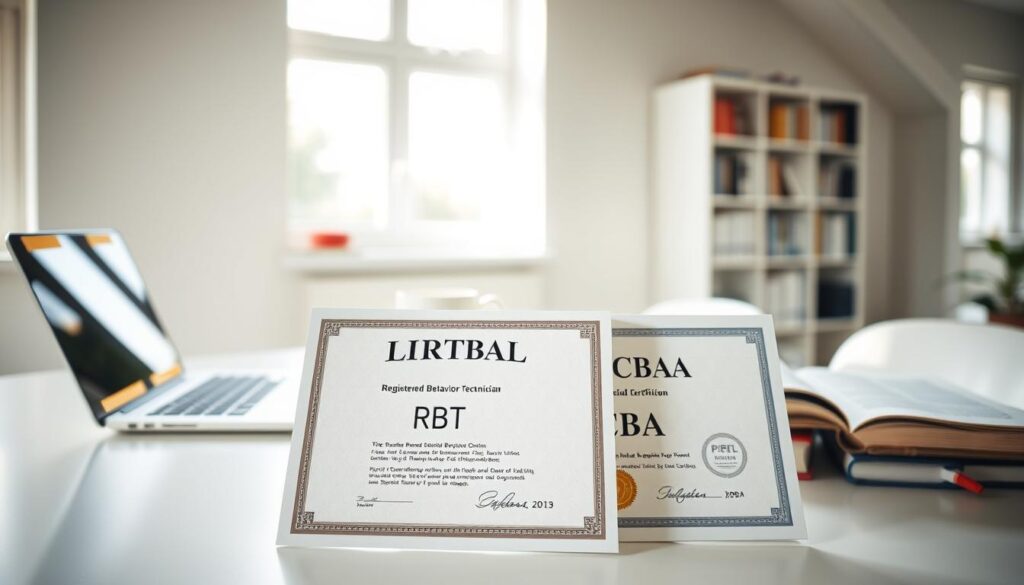
Starting your journey to become a BCBA from an RBT needs careful planning. You must manage your current RBT certification while getting new credentials. Keeping your Registered Behavior Technician (RBT) status is key during your growth.
Important steps for keeping your RBT certification include:
- Completing annual competency assessments
- Renewing certification every two years
- Continuing to meet supervision requirements
- Staying current with ethical guidelines
Getting a BCBA certification takes a lot of time and effort. Strategic planning is vital to balance your RBT job with your studies. This way, you can keep growing professionally while keeping your current certification.
Keeping your RBT certification while getting your BCBA has many benefits. These include:
- Continued practical work experience
- Steady income during training
- Ongoing professional skill development
- Networking opportunities in behavioral analysis
Money matters when moving from RBT to BCBA. Your current certification gives you stability. It lets you focus on your education and the supervision hours needed for BCBA.
Professional tip: Make a detailed plan for your RBT needs and BCBA studies. This organized way will help you smoothly go through the certification process. It won’t hurt your current job.
Career Opportunities After BCBA Certification
Getting a BCBA certification opens up many exciting career paths. It lets professionals work in different fields, helping people in meaningful ways.
BCBAs can work in many places, using their skills in applied behavior analysis. This certification lets them pick from various interesting career paths.
Private Practice Options
BCBAs in private practice have a lot of freedom. They can:
- Offer independent consulting services
- Run specialized behavioral clinics
- Provide telehealth services
- Help parents through training programs
Clinical Settings
In clinical settings, BCBAs can use their skills directly. They can work in:
- Autism treatment centers
- Mental health facilities
- Rehabilitation centers
- Programs for developmental disabilities
Educational Institutions
Schools and academic settings offer great career paths for BCBAs. They can:
- Help with special education
- Develop individual education plans (IEPs)
- Be behavioral intervention specialists
- Work on research and curriculum design
The salary for BCBAs varies based on their skills and the impact they make.
| Career Setting | Average Annual Salary | Job Growth Projection |
|---|---|---|
| Private Practice | $75,000 – $95,000 | 15% growth |
| Clinical Settings | $65,000 – $85,000 | 12% growth |
| Educational Institutions | $60,000 – $80,000 | 10% growth |
The career path for BCBAs is growing. It offers many chances for professionals to make big differences in behavioral health and education.
Timeline Expectations for RBT to BCBA Transition
Going from a Registered Behavior Technician (RBT) to a Board Certified Behavior Analyst (BCBA) needs careful planning. It’s a journey that can take 2-5 years, depending on how fast you work and your goals.
The steps to become a BCBA are clear:
- Educational Preparation (1-3 years)
- Start a graduate-level program in behavior analysis
- Make sure your classes meet BACB standards
- Keep your grades high
- Supervised Fieldwork (1-2 years)
- Get the needed supervised hours
- Work with a BCBA who is qualified
- Keep track of your clinical work
- Exam Preparation and Certification (3-6 months)
- Study for the BCBA exam
- Finish all your paperwork
- Take the certification test
Things like studying part-time or full-time, work, and personal life can change your timeline. Planning well and working hard are key to getting your BCBA certification.
Professional tip: Make a detailed plan, stay organized, and talk often with your supervisor. This will help you move smoothly from RBT to BCBA.
Conclusion
The journey from Registered Behavior Technician (RBT) to Board Certified Behavior Analyst (BCBA) is exciting. It shows a big step forward in the field of applied behavior analysis. To become a BCBA, you need dedication, a plan, and a love for helping others.
Getting to BCBA involves several key steps. First, you need to finish your graduate studies. Then, you must get supervised fieldwork hours. Lastly, you have to pass a certification exam. Each step uses what you learned as an RBT, making you better at helping people.
Those who make this change open up great career doors. You can work in clinics, schools, or private practices. Growing your skills not only helps you but also lets you make a big difference in people’s lives.
Thinking about this big step? Remember, becoming a BCBA is more than just a job. It’s a promise to help people through science-backed methods. With hard work, a good plan, and a true wish to help, you can become a respected BCBA.
